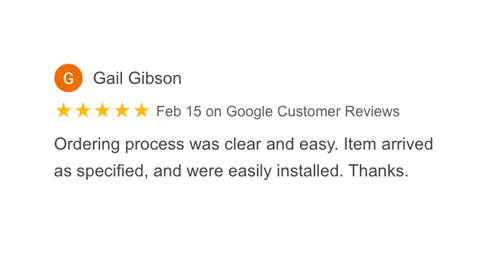Your vehicle’s fuel efficiency depends on many different factors, including its size, fuel type, and, of course, its engine. If you’ve ever wondered what engine factors affect the average fuel efficiency of cars, read on. We’ll be looking at what makes a fuel-efficient engine, and touch on how your driving habits can contribute to a higher or lower fuel bill at the end of the month.
How Efficient Is Your Vehicle’s Engine?
Your vehicle’s engine is made up of a ton of different parts that work together to keep the vehicle moving using the fuel in its tank. Engine fuel efficiency is determined by measuring how much of the energy in the fuel gets converted into power for the vehicle. Most gasoline engines are 30 to 35% efficient. Think of it this way: For every $10 you spend on gas, $6.50 is spent on unused energy. Automakers have been trying to increase fuel efficiency for years. Here are some technologies that your engine might have that increase its fuel efficiency:
Turbochargers
Smaller, turbocharged engines benefit from 2 to 6% lower fuel consumption compared to larger, standard engine variants. This is thanks to how turbocharged technology handles energy from the system’s exhaust to drive more air into the engine’s cylinders, creating larger combustion reactions and more power while also minimizing work for the pistons. The system allows these smaller, turbocharged engines to produce just as much power as larger, standard engines.
Variable Valve Timing
Variable valve timing (VVT) improves the engine’s combustion and reduces fuel consumption between 1 to 6% when paired with related lift systems. VVT and lift systems adjust the engine’s valves so they can optimally control air and fuel intake and combustion gas exhaust. These systems improve the engine’s efficiency across different operating speeds.
Direct Fuel Injection
Direct fuel injection lowers fuel consumption by about 1 to 3%. It increases the engine’s combustion efficiency by injecting the fuel directly into the cylinder at high pressure. Typical fuel injection systems inject the fuel into the air stream at lower pressures. Direct fuel injection is more exact, making for better timing, spray patterns, and more precise amounts of fuel dispensed into the cylinders. This efficiency results in more power. When paired with a smaller engine, direct fuel injection can make a big difference in fuel savings, even if it’s more expensive and complex than traditional fuel injection systems.
Cylinder Deactivation
A cylinder deactivation system (CDS) can save you 4 to 10% on your vehicle’s fuel consumption. These types of systems fine-tune your vehicle’s engine. They shut down half of an engine’s cylinders when only a bit of power is necessary for the drive. A CDS engages on highways, while downhill driving, and other such situations. Your vehicle’s powertrain control module (PCM) instructs the CDS when to deactivate the intake and exhaust valves and fuel injectors in the cylinders. The PCM tells the CDS to reengage the cylinders when your vehicle needs more power to drive uphill or accelerate.
Horsepower
Horsepower isn’t a technology so much as an engine gesture. It’s a measurement of power, and more power usually means more fuel consumed. At the dealer, they’ll often present you with engine options with different horsepower. Picking the engine with lower horsepower can decrease fuel consumption significantly depending on the difference between the two engine choices.
How Driving Habits Affect Fuel Consumption
Your vehicle’s engine design is only one factor contributing to your vehicle’s fuel consumption. The US EPA estimates that driving aggressively can reduce your vehicle’s gas mileage by 5% on city streets and 33% when going fast on the highway. Here are some driving tips you can try to help decrease your vehicle’s fuel consumption:
- Drive responsively
- Stay below 60 mph
- Avoid unnecessary idling
- Keep your vehicle cargo light
Other Factors That Affect Fuel Efficiency
There are a number of other factors that affect your vehicle’s fuel efficiency, such as whether the engine is in good repair and if your tires are properly inflated. Buying high-quality fuel and keeping your vehicle aerodynamic are also things you can do when trying to cut down on fuel costs.
Even the environment can affect fuel consumption. Cold winter weather means increased resistance, more difficult driving conditions, and higher electrical loads from the window defrosters and HVAC system.
The Future of Automobile Engine Efficiency
Inline combustion engines (ICEs) have been slowly declining in popularity ever since the rise of hybrids and electric vehicles (EVs). However, while hybrids and EVs have been eating up large chunks of new vehicle sales, there are still many ICEs on the road today. These ICEs will remain on the road for years to come, so some experts hope for a rise in e-fuel research. E-fuel can keep these older models going while also keeping ICEs from going the way of the horse and carriage.
While e-fuel is still evolving, it’s important for automakers to continue improving the combustion engine efficiency in their vehicles. That way, once e-fuel does start becoming more common, modern vehicles will be able to use it to its fullest potential.
Any information provided on this Website is for informational purposes only and is not intended to replace consultation with a professional mechanic. The accuracy and timeliness of the information may change from the time of publication.






















